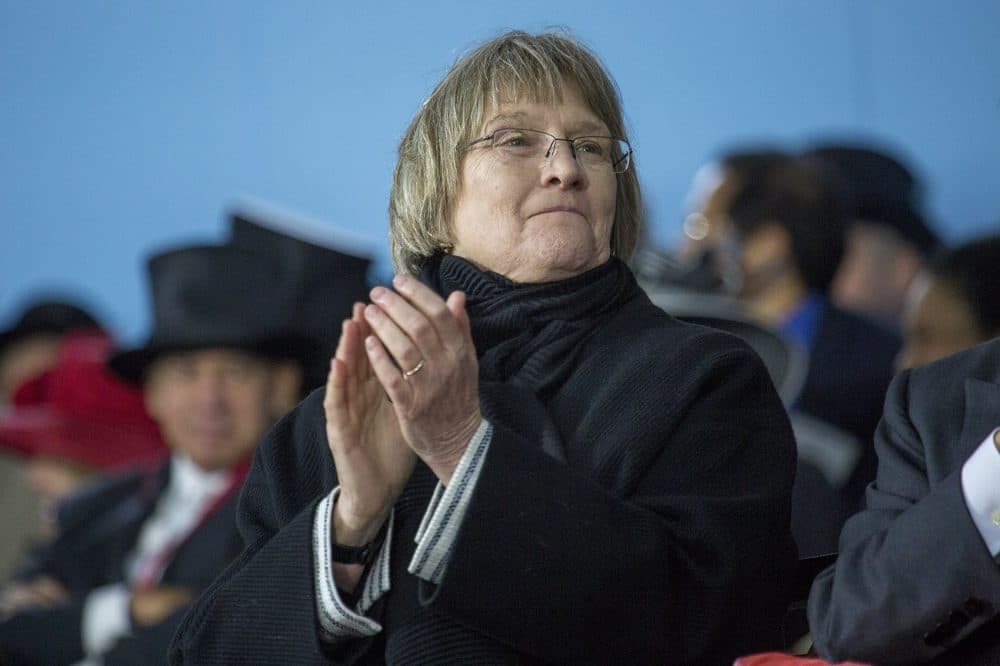Advertisement
Faust, Harvard's First Woman President, Praised For Improving Inclusivity During Her Tenure
Resume
Harvard is an old institution. Founded in 1636, it's the oldest college or university in the country, and 10 years is a short time in that history.
But Drew Faust, who announced Wednesday she's stepping down in 2018, has left her mark. Ten years ago, she became the first woman to lead Harvard.
Bill Lee, senior fellow of the Harvard Corporation, the university's governing body, points to two main accomplishments:
- Faust's ability to unite a sometimes fractious and sprawling university.
- "And then," Lee said, "to open that up with really robust financial aid to a broader and more diverse set of students has been her singular accomplishment."
The Harvard Gazette, the university's official news source, reports that most of Harvard's undergraduates are now nonwhite.
Shervin Tabrizi was one of those students. He just graduated from the medical school. He arrived from Canada as a first-year undergraduate in 2007, Faust's first year as president.
"There was an overall message of inclusion," Tabrizi said, "and that Harvard is an institution that's for everybody who's here that's attending it, and that there should be equality and inclusivity."
At the law school, Micah Nemiroff also had praise for Faust on Wednesday. He works at the career services office.
"There's been a lot of great developments since she's taken over, including the way that the university recruits and accepts students from different backgrounds," Nemiroff said.
Faust has been an advocate for the DREAM Act, which would help students who are not legal residents go to college and become citizens.
Saint Mbakop appreciates her defense of immigrants. He's originally from Cameroon, by way of New York, and is about to begin his third semester at the extension school.
"I've been to many events where she spoke, and she's been very active recently on the immigration ban and all those things," Mbakop said. "She advocates well for the students at Harvard, I think."
Faust's appointment came in the wake of the resignation of Lawrence Summers, who was opposed by many members of the faculty. Summers did push for more financial aid for students, and under Faust, Harvard expanded financial aid, including to middle-income families.
A year after she became president, Faust faced her biggest challenge: steering Harvard through the great recession after the university's endowment plummeted. The endowment eventually recovered, and with a year to go, Faust has raised more money than ever for the university's capital campaign: $8 billion so far.
Faust has not said what she will do when she steps down. She is a lifelong historian and a tenured professor of history at Harvard. While she was president, she finished her most famous book, "This Republic of Suffering," an astonishing work about how attitudes toward death in the Civil War changed American religion, society and government.
As for a successor, Lee says the Harvard Corporation will have more to say about that in the next weeks.
This article was originally published on June 15, 2017.
This segment aired on June 15, 2017.
